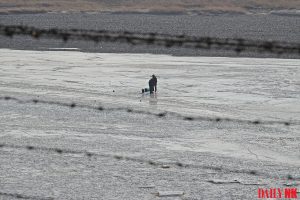As part of efforts to prevent the spread of COVID-19, North Korean authorities have closed almost all bridges on the Sino-North Korean border in North Hamgyong Province “for the time being,” Daily NK has learned. The only bridge that remains open is one in Saebyul County.
“On Jan. 29, the government handed down another strong social distancing order along the border to respond to COVID-19, and three days later on Feb. 1 they closed all the bridges in North Hamgyong Province,” a source in the province told Daily NK on Tuesday. “They ordered the bridge in Saebyul County to remain open for emergencies.”
According to the source, North Korean authorities have long prohibited anyone from crossing the bridges on the border as part of efforts to prevent COVID-19 from entering the country. The authorities decided to take stronger measures, however, when “disorderly behavior” occurred across the bridges, including traders importing various urgently needed goods without fear of being caught.

“There have been many cases where some traders have crossed the border to import needed goods following orders from the government,” the source said, adding, “The authorities left one of the bridges open as a way to [reduce the number of people crossing the border] while allowing these traders to continue their activities.”
The authorities left open the bridge in Saebyul County because most trade activity in the province has occurred there, according to the source.
“There are many traders coming to this place [the bridge in Saebyul County] to conduct their activities,” the source said. “Most traders working in other areas will likely move to this area due to the recent order [to close the bridges].”
The authorities have reportedly told traders that “the current situation is akin to difficult times [the country faced] in the 1950s” and that “you all must live in the spirit of those that survived the 1950s.”
“Trade is essential given the country’s current circumstances,” the source said, adding, “There’s no goods in stock so the value of dollars and Chinese yuan continues to fall.”

















